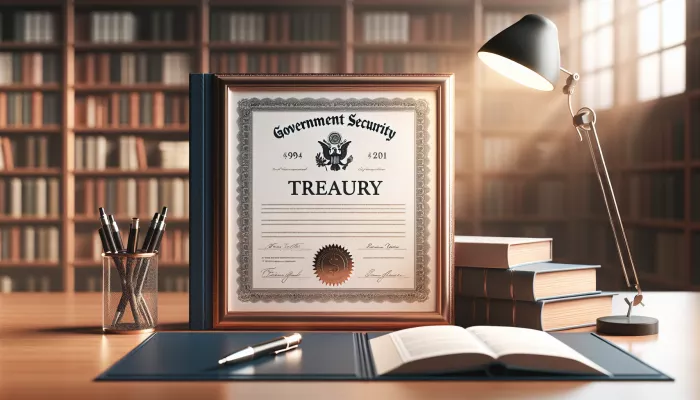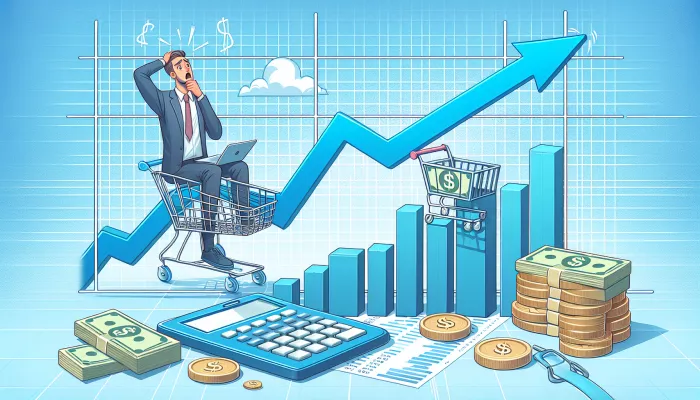
Inflation is a term we hear often in the news, but what does it really mean?
And more importantly, how does it affect your money?
Simply put, inflation is the increase in prices over time, which can decrease the purchasing power of your money.
This means that with the same amount of money, you buy fewer things than before.

Inflation can be caused by several factors, including growing demand for products and services or a increase in production costs, such as raw materials and wages.
When businesses face higher costs, they often pass those costs on to consumers in the form of higher prices.
To measure inflation, economists use price indexes, the most common being Consumer Price Index (CPI).
This index looks at the price of a basket of goods and services over time. If the CPI increases, it indicates that, on average, prices are rising, signifying inflation.
When inflation rises, the value of money decreases. This means that each unit of money you have buys fewer goods or services than before.
For example, if inflation is 5%, what cost R$100 last year will cost R$105 now.
This affects all aspects of the economy, from consumer spending to investment and savings.
Understanding inflation and its effect on purchasing power is crucial to personal financial management.
Staying informed about inflation trends helps you make wiser financial decisions by adapting your budget.
Investments and savings strategies to protect your purchasing power over time.
For more information on price indexes and financial management, you can visit IBGE It is Brazilian central bank.
Protect your finances from inflation is crucial to maintaining your purchasing power in the long term.
With inflation, the value of money decreases over time, which can eat away at your savings and reduce the real value of your wealth. Here are some effective strategies:
Diversification is one of the keys to protecting your finances from inflation.
Investing across different asset classes can help mitigate risk and provide more robust protection against loss of purchasing power.
Consider including inflation-indexed bonds, actions, properties It is commodities in your portfolio.
With inflation, the cost of living tends to increase, which can quickly multiply your unexpected expenses.
Have a emergency reserve A more robust one can provide a necessary fund to cover these expenses without compromising your investments or taking out high-interest loans.
Understanding how inflation works and how it affects your personal finances is essential.
Educate yourself about personal finance and investments can help you make more informed decisions that protect your assets from inflation.
Use online resources, courses and workshops to expand your knowledge.
Keeping a strict budget and reevaluating your expenses periodically can help you identify where you can cut costs.
This not only saves you money, but also reduces the impact of inflation on your household budget.
Implementing these strategies can be a big step towards protect your finances from inflation.
Start planning and adjusting your financial approach today to protect yourself against the erosion of your purchasing power in the future.
Useful links:
Inflation, at its core, reduces the real value of money over time.
This means that if your money doesn’t grow at a rate equal to or greater than inflation, you’re losing purchasing power. Let’s explore how this affects your investments and personal savings.
When it comes to investments, not all are equally affected by inflation.
Some, such as Treasury inflation-protected securities or certain types of stocks, may offer some protection or even benefit during periods of high inflation.
However, traditional fixed-income investments, such as bonds and savings accounts, often suffer as the returns on these investments may not keep up with the rate of inflation.
In terms of personal savings, inflation can seriously erode your purchasing power.
If the rate of return on your savings is less than the rate of inflation, you will effectively be losing money in real terms.
This is particularly worrying for people who keep a large portion of their money in low-risk savings accounts, such as savings accounts, which traditionally offer modest returns.
It is crucial to adopt strategies that can help mitigate the effect of inflation on your investments and savings.
Diversifying your portfolio, considering investments that traditionally perform well in periods of high inflation, is a recommended tactic.
Additionally, regularly reviewing your personal finances and adjusting them as needed can protect your purchasing power over time.
Understanding and acting based on the effects of inflation can make a difference in ensuring financial health in the medium and long term.
Be sure to explore diverse investment options and consider consulting a financial professional for personalized guidance based on your goals and financial situation.